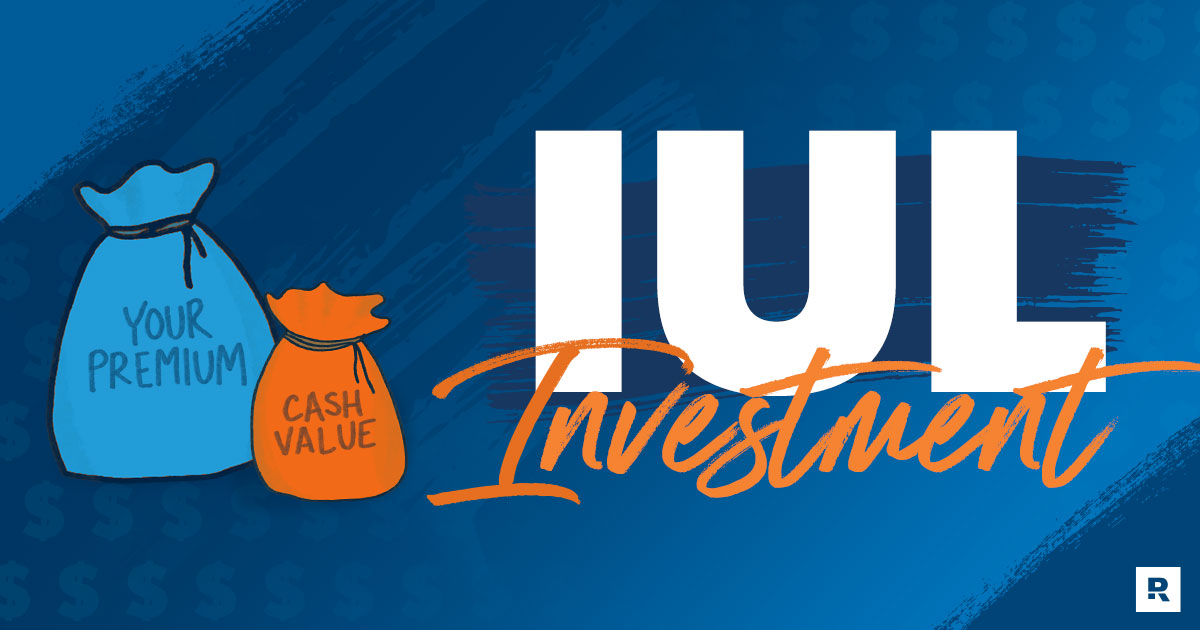All Categories
Featured
Table of Contents
Do they compare the IUL to something like the Vanguard Overall Stock Market Fund Admiral Shares with no lots, a cost ratio (EMERGENCY ROOM) of 5 basis factors, a turnover proportion of 4.3%, and a phenomenal tax-efficient document of distributions? No, they contrast it to some horrible actively managed fund with an 8% lots, a 2% EMERGENCY ROOM, an 80% turnover proportion, and a terrible record of temporary funding gain distributions.
Mutual funds typically make yearly taxable circulations to fund proprietors, also when the value of their fund has actually gone down in worth. Shared funds not just need earnings coverage (and the resulting yearly tax) when the shared fund is rising in value, but can additionally enforce revenue tax obligations in a year when the fund has dropped in worth.
You can tax-manage the fund, harvesting losses and gains in order to decrease taxable distributions to the financiers, but that isn't in some way going to transform the reported return of the fund. The possession of mutual funds might call for the shared fund owner to pay projected tax obligations (no lapse life insurance).

IULs are very easy to position so that, at the proprietor's death, the recipient is exempt to either earnings or estate tax obligations. The exact same tax decrease techniques do not function almost too with mutual funds. There are numerous, often expensive, tax obligation traps connected with the moment trading of shared fund shares, catches that do not relate to indexed life insurance policy.
Chances aren't very high that you're going to go through the AMT because of your common fund circulations if you aren't without them. The rest of this one is half-truths at finest. As an example, while it is true that there is no earnings tax obligation because of your successors when they acquire the profits of your IUL policy, it is also real that there is no earnings tax because of your successors when they acquire a shared fund in a taxed account from you.
Universal Term Life
There are better ways to prevent estate tax obligation concerns than getting financial investments with reduced returns. Common funds may create income tax of Social Protection advantages.

The growth within the IUL is tax-deferred and might be taken as tax complimentary income using fundings. The plan proprietor (vs. the mutual fund manager) is in control of his/her reportable earnings, thus allowing them to decrease or perhaps eliminate the taxation of their Social Safety benefits. This one is excellent.
Here's another minimal concern. It's true if you buy a shared fund for say $10 per share prior to the circulation date, and it disperses a $0.50 distribution, you are after that going to owe tax obligations (possibly 7-10 cents per share) although that you have not yet had any kind of gains.
In the end, it's truly regarding the after-tax return, not exactly how much you pay in tax obligations. You're additionally possibly going to have more cash after paying those taxes. The record-keeping demands for possessing shared funds are dramatically much more complex.
With an IUL, one's documents are maintained by the insurer, duplicates of yearly declarations are sent by mail to the proprietor, and circulations (if any) are completed and reported at year end. This set is additionally kind of silly. Certainly you must keep your tax documents in instance of an audit.
Life Insurance Cost Index
Hardly a reason to acquire life insurance policy. Mutual funds are frequently part of a decedent's probated estate.
In enhancement, they are subject to the hold-ups and expenditures of probate. The earnings of the IUL policy, on the other hand, is constantly a non-probate distribution that passes beyond probate directly to one's named beneficiaries, and is therefore not subject to one's posthumous lenders, undesirable public disclosure, or similar hold-ups and expenses.
Medicaid disqualification and lifetime earnings. An IUL can offer their proprietors with a stream of revenue for their entire life time, regardless of just how long they live.

This is valuable when organizing one's events, and transforming properties to income before an assisted living home confinement. Common funds can not be converted in a similar fashion, and are practically constantly thought about countable Medicaid properties. This is another dumb one advocating that inadequate individuals (you know, the ones that require Medicaid, a federal government program for the bad, to pay for their nursing home) ought to use IUL rather than shared funds.
Group Universal Life
And life insurance policy looks dreadful when compared fairly against a pension. Second, individuals that have cash to buy IUL over and past their retired life accounts are mosting likely to have to be awful at handling cash in order to ever before receive Medicaid to spend for their retirement home prices.
Chronic and incurable ailment cyclist. All plans will enable a proprietor's easy access to cash from their plan, typically forgoing any abandonment charges when such individuals suffer a severe ailment, need at-home treatment, or become restricted to a retirement home. Common funds do not offer a comparable waiver when contingent deferred sales costs still put on a common fund account whose owner needs to offer some shares to fund the expenses of such a remain.
Iul Training
You get to pay more for that advantage (rider) with an insurance plan. What a large amount! Indexed global life insurance offers survivor benefit to the recipients of the IUL owners, and neither the proprietor neither the recipient can ever shed cash as a result of a down market. Shared funds offer no such warranties or survivor benefit of any kind of kind.
I absolutely don't need one after I reach monetary self-reliance. Do I want one? On standard, a buyer of life insurance pays for the true cost of the life insurance benefit, plus the prices of the policy, plus the profits of the insurance company.
Fixed Universal Life
I'm not entirely sure why Mr. Morais threw in the entire "you can't shed money" once more right here as it was covered fairly well in # 1. He simply desired to duplicate the finest selling factor for these things I expect. Again, you don't lose nominal bucks, however you can lose genuine dollars, as well as face serious chance price because of reduced returns.

An indexed global life insurance coverage plan proprietor might trade their plan for a completely various policy without triggering income tax obligations. A mutual fund proprietor can not move funds from one shared fund company to another without marketing his shares at the former (hence causing a taxed event), and repurchasing new shares at the last, commonly based on sales fees at both.
While it is real that you can exchange one insurance plan for another, the reason that individuals do this is that the initial one is such an awful policy that also after buying a brand-new one and undergoing the early, adverse return years, you'll still appear in advance. If they were sold the appropriate plan the very first time, they should not have any need to ever exchange it and undergo the very early, unfavorable return years once again.
Latest Posts
Universal Life No Lapse Guarantee
Index Universal Life Insurance With Long Term Care
Universal Insurance Payment